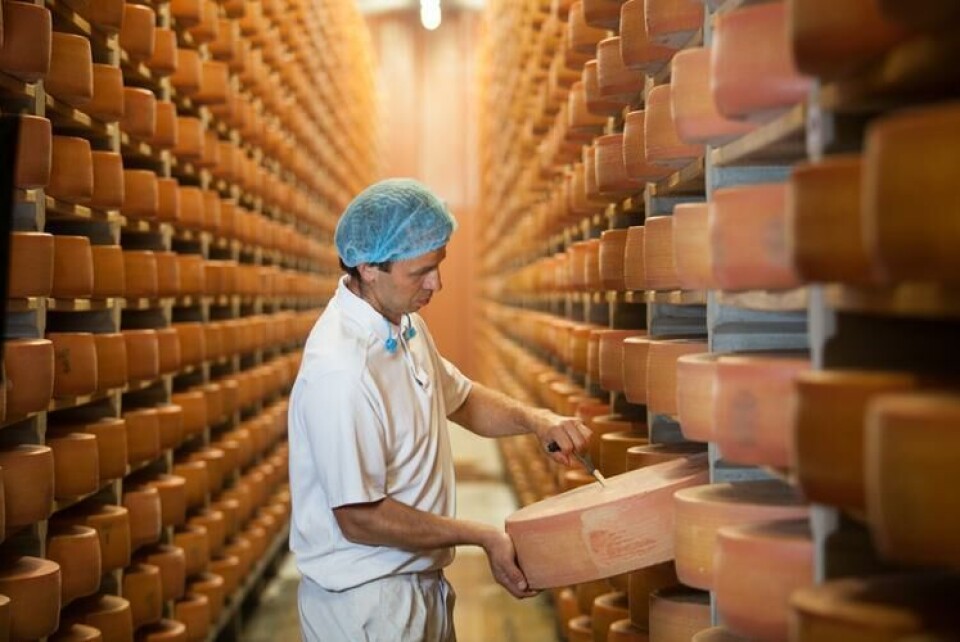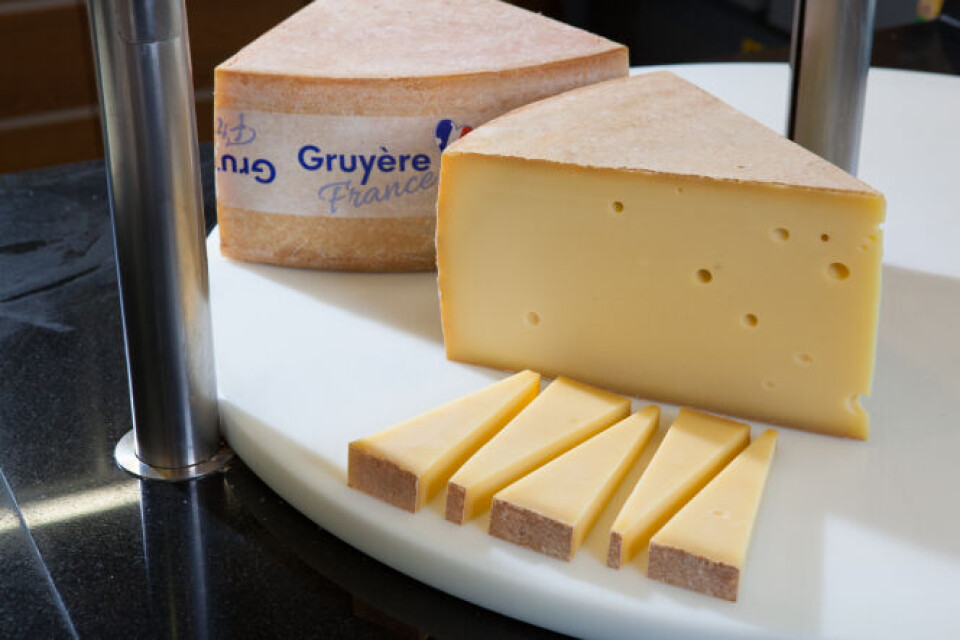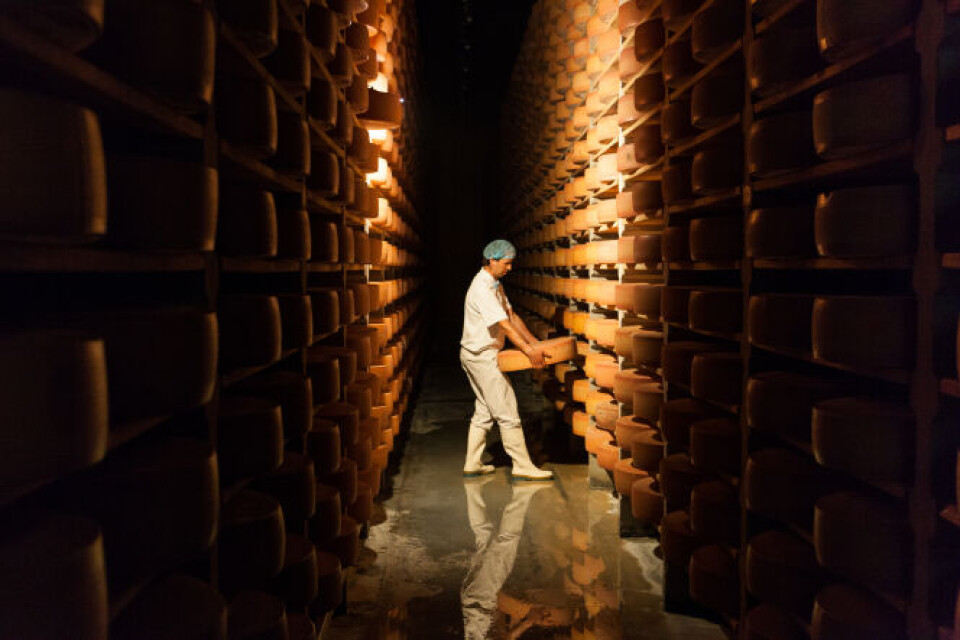-
Mysterious boom rattles residents in south-west France
Local community turns to social media for answers
-
France tightens reimbursement rules for flight delays or cancellations
New measures include mandatory mediation and new claim procedures
-
What snow conditions look like for skiers across French Alps and Pyrenees
Ski resorts are expected to get busier as school holidays begin this weekend
Gruyère makers’ disappointment at US bid to allow name to be generic
The cheese is protected in France and Switzerland and can only be made in certains ways and areas but American court rules cheese made anywhere can have name

French and Swiss cheese makers and government officials will meet at the end of this week to discuss how to respond to an US court ruling that Gruyère is a generic name for cheese.
In both France and Switzerland the cheese, made in the Alps, is protected – in France by an indication géographique protégée (IGP) label and in Switzerland (which is not a member state of the EU) by an appellation d'origine protégée (AOP) label.
Under international law the protection should mean that cheese made outside the geographical limits set by these labels and outside strictly defined processes cannot be called Gruyère.
But a federal court in the US has ruled that because American consumers had become used to calling all similar cheeses – often sold ready-grated or cubed in the US – Gruyère, the IGP and the AOC does not apply and any cheesemaker can make “Gruyère.”

“The meeting date was set before the court decision to discuss common matters affecting the cheese, but now the American decision will be right at the top of the table,” said Natalie Coronel, in charge of promoting Gruyère France.
“It is obviously a great disappointment because we worked hard, and the Swiss worked hard, to get the labels which served to raise the quality of the cheese and stop any dairy in the world from making something which looks vaguely like Gruyère and selling it as such.”
The requirements for Swiss Gruyère and French Gruyère are different, with the Swiss putting geographical limits around the village of Gruyères, while the French geographical limits are larger, stretching over several departments, but put more emphasis on the breed of cow supplying the milk and the cheese-making processes.
Both say that their different cheeses, which are made from cooked cow milk curds, pressed into large moulds, and matured for at least four months, are distinctive, with mild fruity flavours, a slightly damp texture, and low crumble factor.
Unlike its Swiss rival, which has none, French Gruyère cheese must have holes "ranging from the size of a pea to that of a cherry" said EU farming commission spokesman Roger Waite.
The colour and flavour of the cheese varies according to the month of the year it was made. Gruyère made from spring milk when the cows are released into Alpine pastures after spending winters inside, available in the shops the following late summer and autumn, the most intense.
The history of the cheese has been traced back to the 12th century and it has been regulated by Swiss and French governments since the 15th century.
Gruyère, as well as being eaten on its own, is also used in many recipes, including most French cheese fondues.

Around 2,000 tonnes of French Gruyère is produced each year, and it is almost all sold in France, with “hardly any” exported, according to Ms Coronel.
In the ruling, the judge in the Virginia district federal court (the court which rules on many government related cases) wrote: “Although the term ‘Gruyère’ may once have been understood to indicate an area of cheese production, the factual record makes it abundantly clear that the term ‘Gruyère’ has now, over time, become generic to cheese purchasers in the United States.”
As well as selling some US-produced cheeses as Gruyère, Americans have also imported over the last 30 years cheese from The Netherlands, Germany, Denmark, Egypt and Tunisia and sold it as Gruyère.
The big cheese meeting comes at a delicate time in international relations between France and Switzerland.
France is angry that the Swiss bought US-made F35 jet fighters in a contract announced in June 2021, instead of France’s Rafale jets made by Dassault.
Since then, French media have reported that Paris has poured icy water over moves by the Swiss for closer cooperation on matters such as cross-border workers, and on the country’s attempts to foster stronger trade links with the EU.
Related articles
Leclerc and Intermarché recall two cheeses over listeria risk
French hamlet unites with shared cow and a milking rota
French engineers build website to calculate ideal raclette quantities
French dressing is news in US but orange sauce is not found in France
























